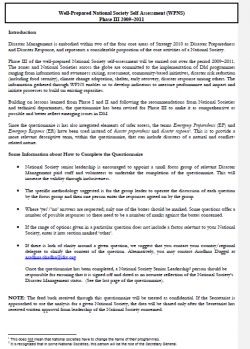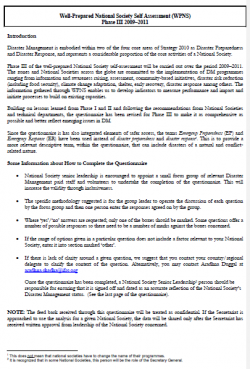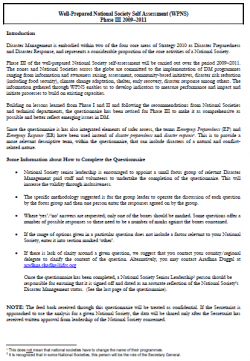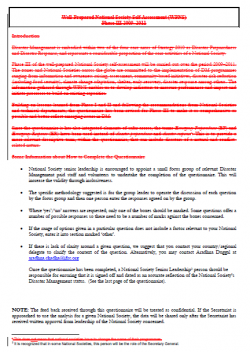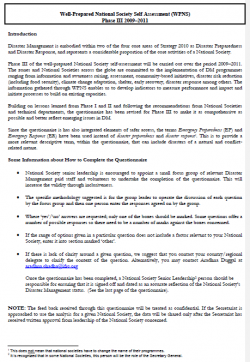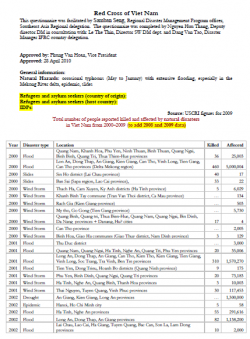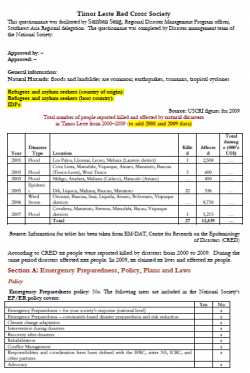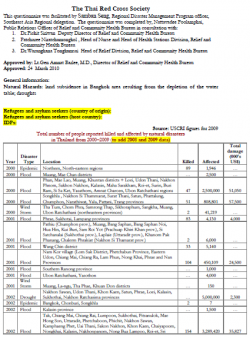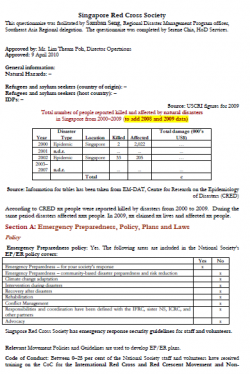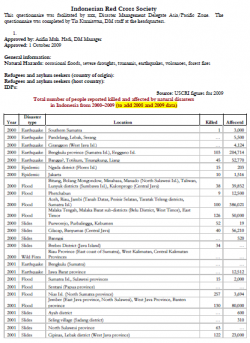Purpose: This questionnaire is used as a baseline understanding of its own Disaster Management capacities. Not only will such a level of analysis help national societies identify their own areas for improvement, but it should facilitate well planned support from partner national societies and the Federation as a whole. This is designed for a small focus group of relevant Disaster Management paid staff and volunteers to undertake the completion of the questionnaire.
Overview: This document is prepared for National Society to conduct self-assessment, which include two phases: (1) Phase I of the well-prepared National Society self-assessment was conducted over the period 2002-2004. A global report on the findings has been published; (2) Phase II of WPNS, which covers the period 2005-2007, the contents are more comprehensive, as lessons learned from the first round of assessments were applied.
A key feature of this second edition of WPNS reflects how the Federation and ICRC coordinate better to facilitate the preparedness support for national societies. Main elements of disaster management include: Disaster Preparedness Planning, Disaster Response, Recovery, and cross-cutting issues such as Disaster Risk Reduction ans Safer Access.
Usage: Monitoring and Evaluation
Audience: Technical staff, Volunteers
![]()


